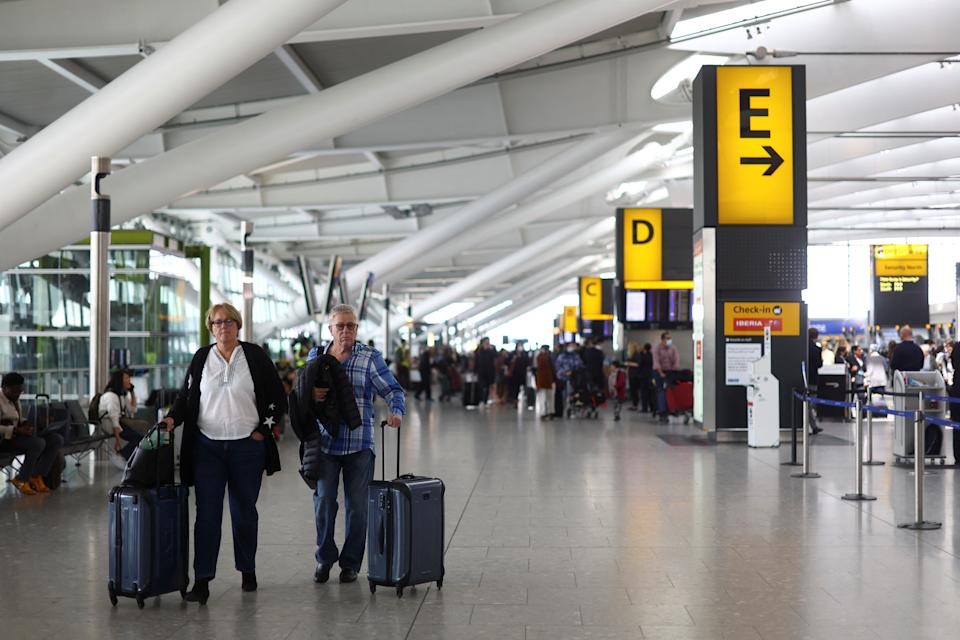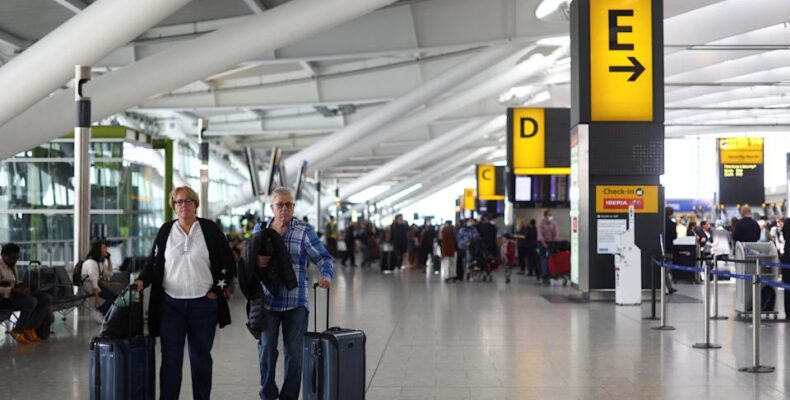[ad_1]

UK holidaymakers are falling victim to flight scams, losing on average nearly £3,000 ($3,762), new analysis of customer data has shown.
The volume of scams linked to holiday bookings has increased by a third (33%) over the past year alone, according to Lloyds Bank (LLOY.L).
Fraud relating to flight bookings rose by 13% in the 12 months to March, with the average amount lost to a scam coming in at £2,955.
Victims of package holiday scams lost £2,342 on average after they rose 17% during the period. Holidaymakers were £1,231 out of pocket due to hotel-related scams, which rose 18%.
There has also been a rising number of fraud cases related to caravan holidays, as UK staycations have gained in popularity since the start of the pandemic.
Lloyds revealed that this has more than doubled with an 108% increase over the past 12 months. However, the average amount lost was much lower at £374.
Read more: Small UK businesses warned of increased risk of targeted scams
“Many scams start with false adverts on search engines or social media,” the lender said, with victims often clicking on a link that takes them to a website where they believe they are dealing with a legitimate company.
Some fraudsters also lurk on real accommodation listing sites, convincing victims to transfer cash directly rather than going through the official platform.
“Now that most pandemic restrictions have come to an end, many of us will be looking forward to a more traditional summer holiday this year,” Liz Ziegler, fraud prevention director at Lloyds Bank, said.
“But with demand soaring and prices rising fast, would-be holidaymakers can’t afford to let their guard down when hunting for the best deals. Scammers are ready to cash in on any last-minute surge in bookings, so it’s vital that consumers know how to stay safe.”
She added: “Book directly with trusted sites or travel agents, avoid following links on social media, and always pay by card for the greatest protection. Remember, if it looks too good to be true, it almost certainly is.”
Read more: Bank fraud rises with ‘authorised’ scam complaints spiking 30% in the UK
Lloyds provided holidaymakers with its top five essential tips to avoid holiday scams this summer:
-
Fraudsters put adverts for fake holidays on social media and the internet. They can also send an offer by email or text pretending to be from a real company. Often, a deal will look much cheaper than those you can find elsewhere.
-
Make sure the deal is genuine. Consider booking a holiday with a company that is Abta or Atol protected.
-
Take your time to make sure an offer is genuine before you choose to buy.
-
Protect how you pay. Credit cards, for example, give people additional consumer protections if something goes wrong.
-
If someone wants you to pay direct to a bank account or by wire transfer, it may be a sign of a possible scam.
Watch: Customers face travel chaos at UK airports as staff shortages take toll
[ad_2]
Source link
